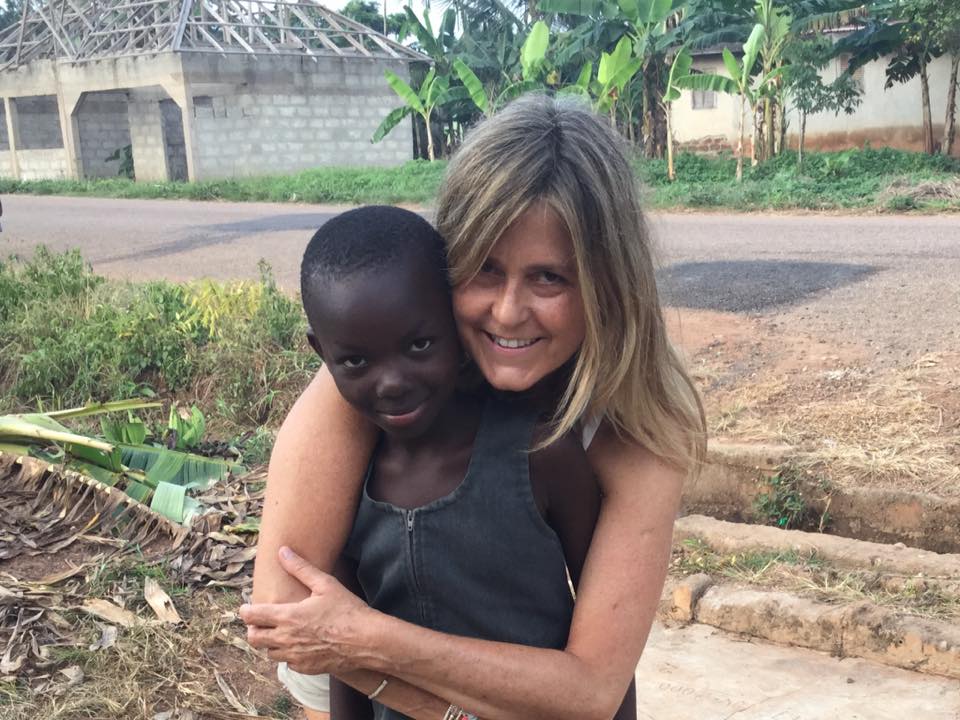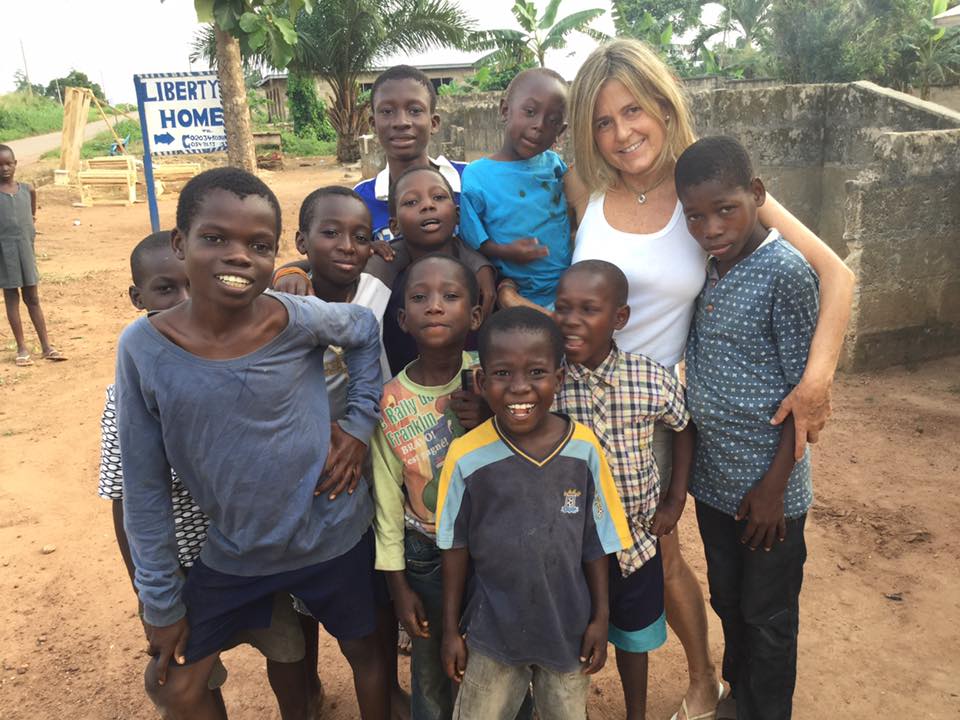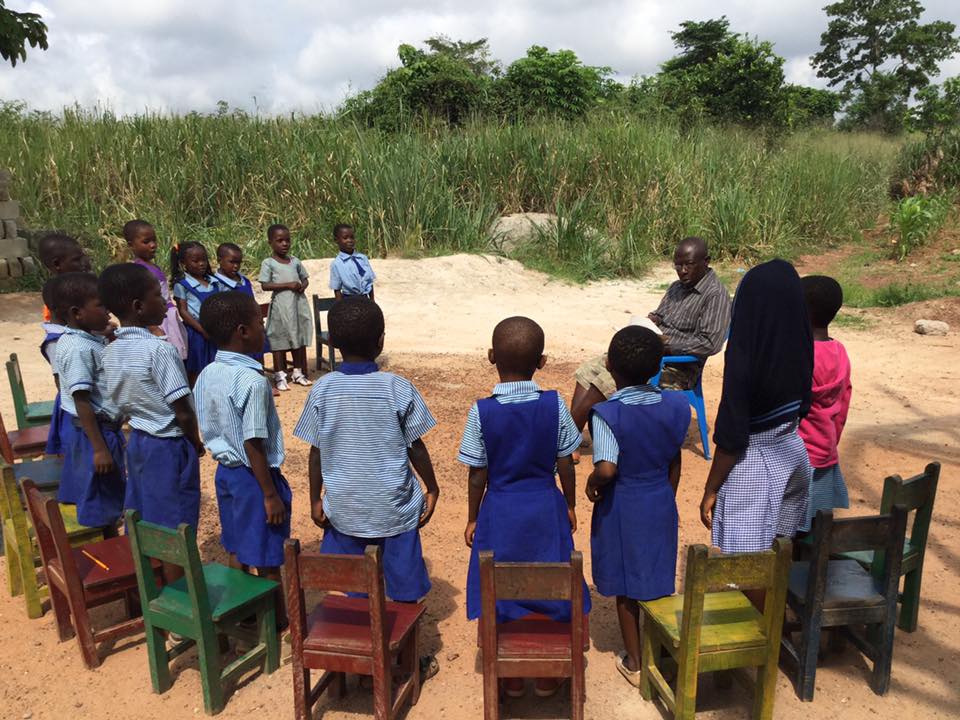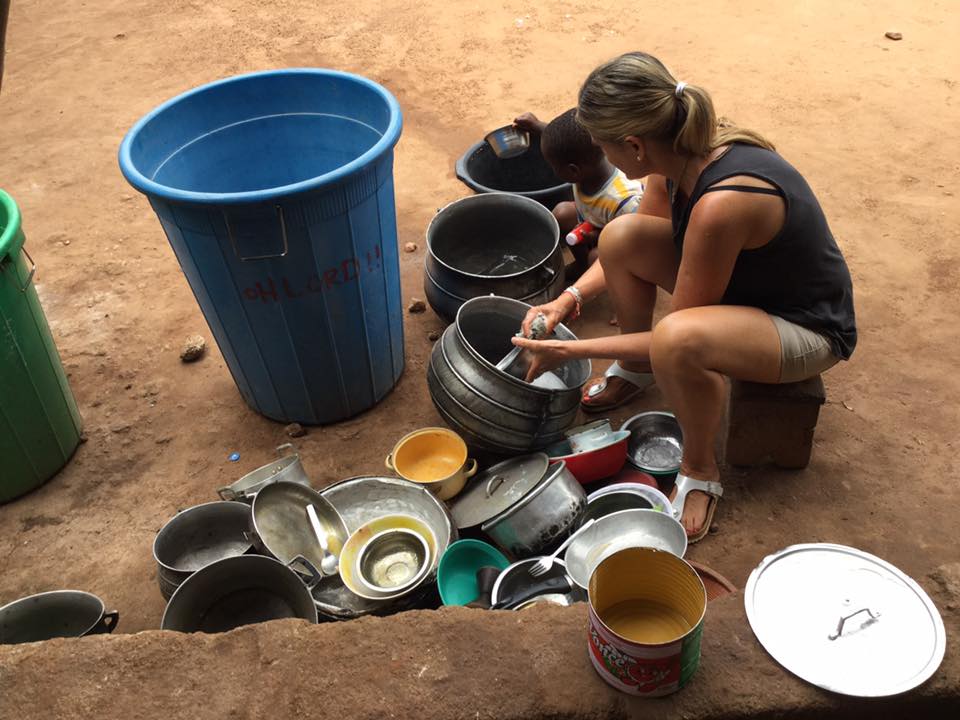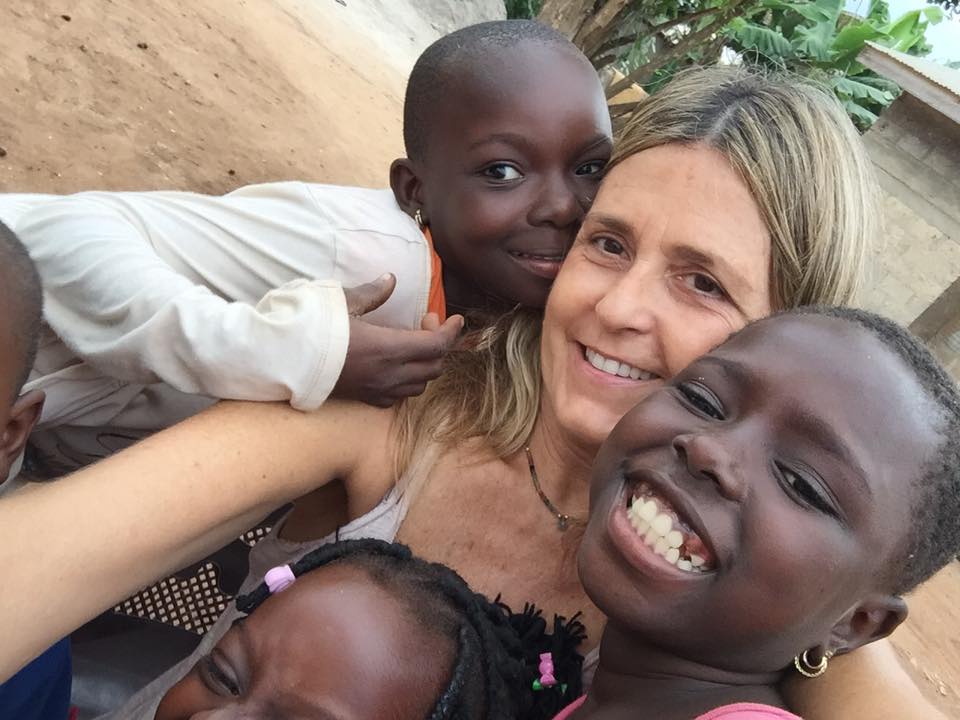Ghana, republic in western Africa, bordered on the north and north-west by Burkina Faso, on the east by Togo, on the south by the Gulf of Guinea, and on the west by Côte d’Ivoire. Formerly a British colony known as the Gold Coast, Ghana was the first majority-ruled nation in sub-Saharan Africa to achieve independence, in 1957. The country is named after the ancient inland empire of Ghana, from which the ancestors of the inhabitants of the present country are thought to have migrated. The total area of Ghana is 238,500 sq km (92,090 sq mi). The capital is Accra.
THE RICH CULTURE


Ghana is truly a multi-cultural country. As a volunteer you should strive to observe, listen and learn the culture of your host country. Therefore, you should always remain observant and non-judgmental.
You will do well to acquaint yourself with some basic “do’s and don’ts” so that your stay in Ghana will be beneficial to those with whom you work and to yourself.
AKWAABA, It’s an expression you will hear several times daily as you travel around Ghana, one that will ring in your ears at night, and bring a smile to your face for weeks after you leave. “Akwaaba” which means ‘Welcome’.
Welcome to a Land of Rich culture, a nation with the reputation as the friendliest in Africa.
Welcome to a haven that combines the charms of a tropical beach idyll with a fascinating historical heritage, rich cultural variety, and some interesting wildlife in the national parks…
Basic Cross-Cultural Principles:
You will be embarking on a distinctive cross-cultural knowledge in which you will be uncovered to different ways of thinking, speaking and interacting. There are certain principles that will help you to enjoy a positive experience and avoid some of the possible misunderstandings that can occur in cross-cultural settings.
Ask, listen, observe and learn—do not assume that what is normal to you will be the normal way of doing things or looking at things. You are a stranger, a visitor; therefore, the responsibility is on you to accept the role of being a learner and showing the greatest respect for the local way of thinking and approaching whatever situation you are in with an open mind and submissive spirit.
Patience, tolerance and understanding—Cross-cultural situations are often filled with stress. This stress comes from being in a different setting than what you are used to. The climate, the languages, the living styles and standards, and just about everything you experience will be different. Your obligation is to be patient, tolerating the differences and possible discomfort. Ghanaians will go to great lengths to make you comfortable and cater to your needs; however, the responsibility is still yours to adapt to and accept the situations in which you find yourself.
Ethnocentrism—this is the problem of people from a culture thinking that theirs is the best of all cultures, or being close minded to learning and adapting to new situations. Judgmental attitudes and insensitive comments are very damaging and hurtful. You are in Ghana purely on a partnership basis that is to work with Ghanaian brethren and friends as co-workers; therefore, it is your duty to watch your attitudes and speech. Do not criticize, mock or ridicule anything or anyone.
Culture stress/shock—normally, one does not experience culture shock unless he is staying in a different culture for an extended time. However, culture stress is felt the moment you enter a strange environment. Changes in routine and context may cause varying levels of stress and discomfort especially if one experiences sickness or other stressful situations. Hearing different languages, being surrounded by customs and settings that are very different as well as being far from your home may cause you to experience this culture stress or shock.
Spiritual values—Religion is very basic in everyone’s life, and the spiritual side of life is regarded as most important. Everything is seen through a grid of spiritual values and realities. This provides for a very receptive atmosphere and positive climate for spiritual work and interaction; however, as in all cases, take time to listen and learn.
Communal values—every society sets its standards of acceptable behavior and what it values in interpersonal relationships. Africa in general and Ghana in particular place much emphasis on communal values like extended family, nuclear family, respect for the elderly, honoring traditional rulers like chiefs and elders, and the importance of dignity and proper social conduct. What one person does is seen as having impact on his entire family, social group and community; therefore, everyone is expected to be careful, respectful, dignified and observant and every public setting and in every aspect of life. There is not much appreciation or acceptance of the extreme sense of personal independence that Westerners holds so dear. An attitude of “I don’t care what others think, I will do it my own way” is judged as selfish, socially deficient and destructive. Everything is to be done by consensus-agreement after much discussion.
There is a very deep sense of doing things in a formal, proper way. This means that too much informality, especially in public settings is not appreciated. For example, Americans tend to value informality, relaxed situations and interaction; however, in Ghana, proper, respectful conduct is expected especially from those who are in the presence of people older than themselves. For example, if you approach a group of people with the intention of speaking to only one of the group about something, you must first take time to greet the entire group before asking permission to speak to the one person. To walk up to a group and speak directly to one person only without first greeting the entire group is considered very rude. This sense of formality and concern for public conduct is also seen in the fact that eating and drinking during meetings, church services, prayer times, etc., is not acceptable, neither is chewing gum. The general rule is: “Do not eat or drink in the gathering unless you are offered something by the host.”
This sense of formality and respect is also seen in the custom of removing sandals before entering a house (this includes flip-flops). Also, when you are entering someone’s room (especially bedroom or private office), you should knock on the door or say “knocking” before entering, even if the person has already told you to come in. This evidences a respectful, careful attitude. Always remember to be cautious, respectful and observant so as not to be offensive. This is especially true when you are in the presence of authorities, elderly persons and in public settings.
Language—there are 52 major languages and hundreds of dialects in Ghana. Each language is very complex and adequate in its particular setting. Many Ghanaians speak many different languages, demonstrating a linguistic skill that is totally unknown to most Westerners. You will do well to attempt to learn as much of the local languages as you can. Ghanaians are very encouraging of this and feel honored when you show this level of respect and concern. Language is the primary tool of constructing meaning in any culture, so you will benefit greatly from paying close attention to the beauty and wealth of expression in the various languages.
BASIC RULES OF ETIQUETTE IN GHANA
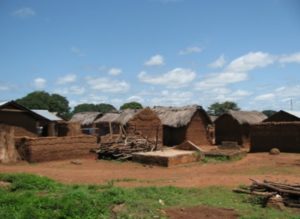 In Ghana, you will find the people to be friendly and welcoming. Therefore volunteers are advised to be POLITE AND RESPECTFUL. Below are some etiquette tips to take with you on your trip to Ghana.
In Ghana, you will find the people to be friendly and welcoming. Therefore volunteers are advised to be POLITE AND RESPECTFUL. Below are some etiquette tips to take with you on your trip to Ghana.
1. What to Wear
- DO remove your hat when speaking to an elderly person or a chief, as it shows respect for their traditions.
- DO dress somewhat modestly. Shorts, t-shirts, and the like are fine.
- Food/Drinks
- DON’T eat with your left hand.
- DON’T blow your nose at the dinner table.
- Body Language and Gestures
- DON’T use your left hand to give or receive items, point at things, or wave at a person.
- Greeting
- DO greet with a handshake and a smile.
- DON’T shake hands with your left hand.
- Visiting Someone’s Home
- DO take off your sandals when entering some ones room.
- Photography
- DON’T take pictures at the State House, prisons, airports, etc.
- DO ask someone before taking their picture.
In Ghana, most people are incredibly patient and hospitable, and many enjoy having people visit their country. However, in order to blend in a little better and respect the customs and Ghana’s heritage, keep the above etiquette in mind. Enjoy your stay
SOME GHANAIAN LANGUAGE AND THEIR MEANING
ENGLISH TWI
Welcome – Akwaaba
Good morning – Maakye
Good afternoon – Maaha
Come – Bra
Good evening – Maadwo
How are you – WO ho te sen?
I am fine – Me ho ye
Participants will get to learn more of the language upon their arrival in Ghana.
Your Host Family, food and accommodation
Whilst on placement you are more than likely to be placed with a host family so you can gain a real insight into the culture and way of life. You will be staying with a host family, within a rented house or a hostel and volunteer will stay either in a single or shared room. Our host families are carefully screened and selected base on S.A.V.O’s requirements. All our families are middle-class and live in safe neighborhoods. The distance from the project varies and your home stay will often in the rural areas. The family will provide three meals a day usually except on some unforeseen circumstances. This means that 70 percent of your fee will go directly into the local host families. Our involvement with distant communities also means that, we can find you accommodation in the home of a local family, rather than a hotel or guesthouse. Cultural differences can cause confusion, so it’s worth making the effort to find out what is and is not expected of you e.g. time of returning home at night.
There is the opportunity to extend your stay should you wish to which you can discuss when you are with us.
LIVING CONDITIONS
Houses in Ghana are very simple with separate sleeping room and at times a separate living room. The kitchen and the toilet is separated from the main house in villages. The toilet is not a water closet but a local pit toilet. No tap, but a water pump, and water from the streams. You have to use this for your washing and laundry. However, many host families have electricity and running water.
Normally, you will get a simple with a bed and at times a shared room for volunteers or with another volunteer. Please come with a mosquito net.
Be prepared to take your bath from the buckets. When water is provided to you for bathing please do so because Ghanaians are very particular about bathing, especially for women who are expected to bath twice a day. Most of the time you will find your arrangements more adequate, but you may be inconvenient at other times. Please do not worry because this just for a short stay.
Food would be prepared always and three times a day (breakfast, lunch and meal) In the morning tea with bread and egg would be available, afternoon – rice and stew along with any soft drink. In the evening fufu, kenkey fermented dough made from maize or banku a stiff porridge made from maize.
DAILY LIFE
Ghana’s population is concentrated along the coast and in the principal cities of Accra and Kumasi. There may be grandparents, parents and children living under one roof and sharing the daily activities. Being part of this community you should be open and try to help and involve yourself in tasks carried out “at home”. Ghanaians are interested in showing you their way of life. You could learn how to cook, work in the farm (planting etc). You can also support them by doing the dishes and cleaning your room. Sometimes just relax and watch television or play cards with your host family.
The people in the community would interested in learning more about your family, culture, how food is being prepared in your country and interesting places in your country so you could bring pictures of your family and your country.
Most of our host families have experience with volunteers and will give you all the necessary advice support you need to feel comfortable. Some family members might speak English but in case you have any problems or not sure of what to, please feel free to them. S.A.V.O staff will visit you from time to time so you can address your problems to our staffs.
RULES FOR VOLUNTEERS IN HOST FAMILY
- Please do not use drugs or alcohol in your host family.
- Please treat all people with respect and dignity, especially the elders of the community.
- Dress properly with regard to the local culture, as well as weather conditions.
- Please ask for permission first before you use the facilities of your host family (TV, DVD, car, etc)
- Your door should be locked always.
- Please clean your clothes yourself.
- You would be served with Ghanaian food three times daily. Host families do not serve volunteers separate exotic foods.
THINGS TO CONSIDER
Lodging and food are supplied with the placement. Weekend traveling and sight-seeing, however, are on your own, and expenses are not covered under the programme fee.
Please bring with you any special food that you need. It may not be possible to find them when you are in Ghana, away from city centers.
If you are on a special diet, have allergies or take special medications, please make sure this is known to both the S.A.V.O staffs and the host family; be prepared to find that your preferences or needs may not be available. Bring your medications with you!!! Inquire about matters such as allergies and special diets, before coming, and bring any special foods you will need.
Families do not serve volunteers separate exotic cuisine.
EXPECTATIONS
Arriving in West Africa as volunteer worker, being a ‘role model’ for all humankind, you may be expecting to change the world. Although the work you contribute will be invaluable, it is the cumulative effort of many volunteers like you that will truly make a difference, Compared to other African countries, Ghana is making great progress in developing. Don’t be surprised to see a traffic jam in Accra, the capital, taxis in the larger towns, or many people talking on cell phones. But even in these urban areas, fundamental infrastructure (i.e. proper waste disposal) is still lacking and many people are in need of the help volunteers can provide. Ghana is an extremely safe country for international volunteers.
ENTRY REQUIREMENTS
PASSPORT:
A valid passport is mandatory and volunteers must apply for and receive a visa to Ghana before they embark on their journey. Visas can be applied from any Ghanaian embassy in your country .There are many services which will arrange for your visa for an additional fee, or you can apply directly to the Ghanaian embassy. Volunteers join our programmed on a tourist visa basis. S.A.V.O does not manage long term or working visa for volunteers; these are not required for our programmed.
VISAS:
Visas are required of most non-residents. Volunteers can extend their visas at the following Department of Immigration in Kumasi, Accra, Sunyani, Cape Coast, Koforidua and Tamale.
(Office working hours: Monday – Friday: 8:30am – 3:00pm)
Additional fee is required for your visas extension at the Department of Immigration.
SAFETY AND SECURITY
- While Ghana is considered a peaceful and safe country, volunteers are advised to be wary of strangers, and to avoid secluded and quiet places. Personal effects and important documents must be kept secure. Please remember that every civil society has some unsociable elements. Ghana is no exception in this trend.
MEDICAL INFORMATION
Immunization/Vaccination: Evidence of immunization for yellow fever and cholera is also required.
Yellow fever: A yellow fever vaccination certificate is required from all travellers when entering Ghana.
Malaria: vaccination for malaria is recommended
Be careful of sunburn. Tropical sun in extremely strong and can burn you very quickly. Always remember to wear sunglasses, sunscreen and a hat.
Don’t swim in freshwater lakes and estuaries. You can catch Schistomiasis (also known as Bilharzias). It is a parasite that bores into your foot and lives in your intestines. Also on the coast, watch out for dangerous rip – tides and strong currents. There can be sharks sometimes as well. If in doubt ask the locals if it is safe to swim.
The following vaccinations are recommended:
Yellow fever: Please get documentation of this before coming to Ghana.
Tetanus: Administered as a routine in the west. Please check that you are up to date.
Diphtheria: Now given with tetanus in the same shot.
Polio: A routine vaccination. Please check if you are up to date.
Hepatitis A:
Hepatitis B: If you are exposed to blood or will stay more than 5months.
Meningitis: Optional, but recommended as meningitis is prevalent in areas of Africa just northern part of Ghana.
Typhoid: Water-borne disease which can cause high fever.
We recommend you ask your medical doctor for advice about vaccinations. If you have any sort of allergy please let us know in the beginning of the program so that we can manage the appropriate setting according to your health condition and ensure that all appropriate vaccinations are up-to-date.
Your safety is our priority:
Your well being while volunteering with us is our priority. We make sure your trip is safe and our in-country coordinator will provide whatever support you may need at any step along the way.
MONEY
The Government of Ghana has introduced new banknotes (Ghana cedi) and coins (Ghana pesewa). 10,000 cedis = 1 Ghana cedi = 100 Ghana pesewas. The old currency is no longer legal tender as of 31 December 2007. In large urban areas such as Accra and Kumasi, ATMs are commonplace and will accept most cash cards – but not Switch. Credit cards are accepted at many hotels, guesthouses and some shops, but credit card fraud is commonplace and you should exercise caution when using them. You should contact your bank if you intend to use you credit cards in Ghana as many banks do not honour any transactions attempted here either in hotels or at ATMs due to the possibility of fraud. MasterCard is not widely accepted for use in Ghana particularly at ATMs. Travellers’ Cheques can be exchanged in large hotels, banks and Forex bureaux. However, Travellers Cheques from some banks are not accepted: check with your bank prior to travel
CLIMATE
The climate of Ghana is tropical, but temperatures and rainfall vary with distance from the coast and elevation. Except in the north, two distinct rainy seasons occur, from April to June and from September to November. In the north the rainy season begins in March and lasts until September. Annual rainfall ranges from about 1,015 mm (40 in) in the north to about 2,030 mm (80 in) in the south-east. The harmattan, a dry desert wind, blows from the north-east from December to March, lowering the humidity and creating hot days and cool nights in the north. In the south the effects of the harmattan are felt in January. In most areas the highest temperatures occur in March, the lowest in August. The average annual temperature is about 26.1° C (79° F).
CLOTHING:.
Every one has the right to wear what he/she likes but, the usual custom is to wear knee length. A great thing about Ghana is that you can buy material to have clothes made for you at very low prices with some original designs. You can wear long trousers, skirts and shirts.
These clothes protects you from the sun, shorts are ok for beach, jogging and in the major cities.
Footwear – bring sandals, hiking boots, smart walking shoes, and running shoes.
FOOD AND WATER
Please take good care of what you eat and drink. The worst you expect is some minor stomach upsets.
- Avoid cold meats and sausages along the road sides. Street foods are safe to eat as long as they are protected from dust and flies.
- Volunteers are expected to take a lot of water because of the heat. S.A.V.O recommends bolted mineral water to volunteers. (Voltic mineral water etc).
HYGIENIC PRECAUTIONS
- Avoid the use of water from the tap to brush your teeth, except it’s boiled or purified
- Avoid drinking from the tap, unless it’s purified or boiled.
- Please water that comes in sealed bottles.
WHAT TO BRING WITH YOU
- Personal use items
- Backpack
- Towel for showering.
- Pillow case and sleeping sheet
- Torch, lamps
- Guidebooks
- Good books for leisure time
- Journal or diary
- Pens and pencils etc.
- Alarm clock
- Camera and film
- Waist bag or money pouch
- Water purification tablets
- Sunglasses and sun cream
- Photos of your family and country. Ghanaians like seeing pictures to learn about your family & culture.
- Mosquito nets
- Walking boots/trainers
- Waterproof jacket. Not needed much in the dry season (Jan-Mar) but is advisable to bring with you.
- Water bottle
- Secondhand goods. For example, old mobile phones, old or new laptops, clothes, boots, toys, electrical goods, and soccer (football) balls and sweets make great donations in Ghana.
- Medical essentials. Mosquito spray with DEET advised. Appropriate inoculations and medicine as advised by your Doctor. (Usually volunteers bring malaria drugs with them but have inoculations against yellow fever, Hepatitis A & B, Tetanus and Polio before arrival but this list is superseded by any advice your local medical professionals give you). A first aid kit including stomach-soothing drugs, medicine for diarrhea and constipation can all be useful although all towns have pharmacies. Antibacterial gel and multi-vitamins are also advised.
- An unlocked mobile phone. When in Ghana the cheapest way to make calls is to buy a local chip and use a pay as you go system. You would be supplied with a free network chip.
- Personal stereo (IPOD, MP3 etc). Sometimes perfect for long distance bus rides.
- Hat – you can also get one at the market.
THINGS EASILY FOUND IN GHANA DIFFICULT TO GET
Disposable razors Razor Heads, Sun Tan Lotion, Dental Floss
Sanitary Towels Tampons
Toothpaste, Soap, Shampoo Mosquito Spray (Especially with DEET)
Biscuits, Bread Potato crisps
Chicken, Fish Bacon, Lamb, Beef (latter is more possible)
Ghanaian Chocolate Western style chocolate bars
Star (local brewed bottled beer for $1) Western beer/alcohol
Tinned milk Fresh milk & dairy products
ROAD CONDITIONS
There are poor road conditions in Ghana, mostly in the rural areas, but he major ones are quite good. Don’t be surprised to see traffic jams in the big cities of Ghana (Accra and Kumasi).
TRANSPORTATION
It’s cheap to travel around Ghana during your stay.
Air and rail traveling is not frequent as compared to developed countries. The best way is to check schedules and availability before setting off You have several options when traveling by road.
STC /Metro buses / CITY EXPRESS BUSES
It’s safer to travel in the STC /Metro bus /CITY EXPRESS. Tickets are being sold only on the day of your departure and you should be there a few hours before your bus leaves to ensure your seat.
They are the reliable and punctual form of transportation in the country and operate between major towns. You should board at the station.
TRO-TRO
The tro-tro is a mini bus with seats 15 which runs throughout the urban areas and cites. It’s cheaper than the STC.
It’s fun in these buses, just stop them by the road side with your right hand and tell the where you are going to and if it’s going to your destination all you need to do is hop in. (you may be required to shift because it’s three on a roll)
TAXI
Easily identified by it’s color, yellow on the hips and shoulders.
- You can hire them for a town trip or join from station to station. The town trip ones moves from one point to the other honking their horns.
- It’s safer to hire them during the night than to join when you are alone.
LINE TAXI
It’s cheaper when shared with others on a fixed route. You can board and get out anywhere on the road. The fee is a fixed one and cannot be bargained. All you need to do is to ask the driver for the fee and pay as you go.
NOTE: Please do well to pick them at the station for easily identification in case you drop your item.
PLACES OF INTEREST
The land of many lakes, hills and forests, there are many places to visit in Ghana for its tourists. There a little of everything for people visiting Ghana. There’s adventure for the adventure craze, beautiful scenic nature for the soft romantic souls, various wildlife and sanctuaries for the animal lovers and various types of local and western cuisine for the foodies. One must visit all the interesting places to visit in Ghana while exploring the land.
- Mole National Park
- Aburi Botanic Garden
- Wli Water Falls
- The Famous Larabanga Mosque
- Accra Beaches
COMMUNICATION
The easiest and cheapest way of communicating or making calls either international or local calls is by using a GSM phone and a network chip.(you would be given a free network chip to slot into your mobile phone).
Conclusion:
These guidelines are meant to help you maximize the benefits of your time in Ghana as well as prevent some very common mistakes. There are many other cultural do’s and don’ts that you will pick up when you are in the country. Do not be afraid of making mistakes, we all do that, even those who have lived here for years. Just be sensitive and seek to learn. There is no way that we can prepare a list of guidelines that will incorporate all possible scenarios, so these are given as a sampling of certain principles and actions that are both acceptable and unacceptable. When in doubt, ask, ask, ask and ask again. Listen and observe. Read up on African and Ghanaian culture as well as general cross-cultural materials. The single most important attitude is one of humility that seeks to learn.
Enjoy your stay with us in Ghana and we highly appreciate the interest and passion that you have expressed to our people and culture. Your effort and hard work will put a great impact for the development of Ghana.
Please do not hesitate to let us know if we may be more helpful to you.
SAMBA AFRICA VOLUNTRY ORGANIZATION-GHANA

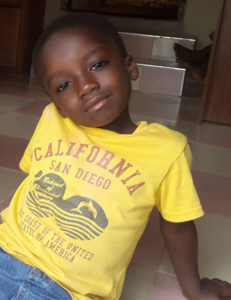 Sponsor a Child
Sponsor a Child 


